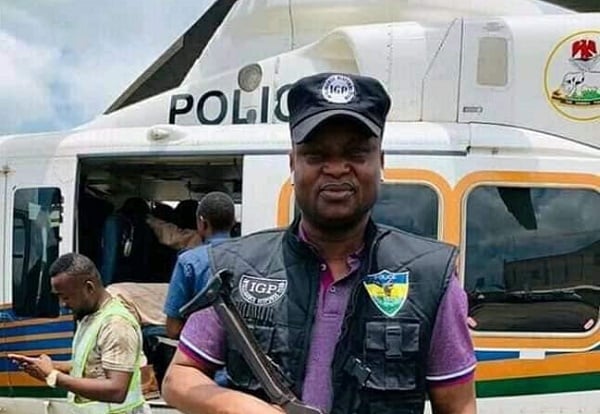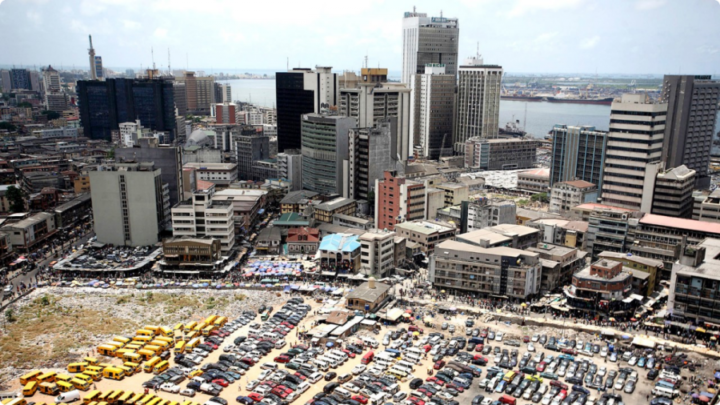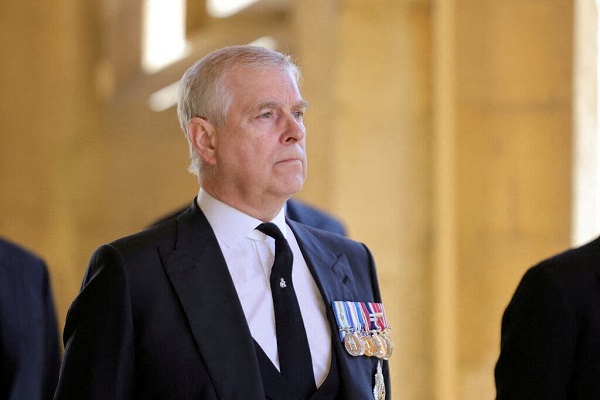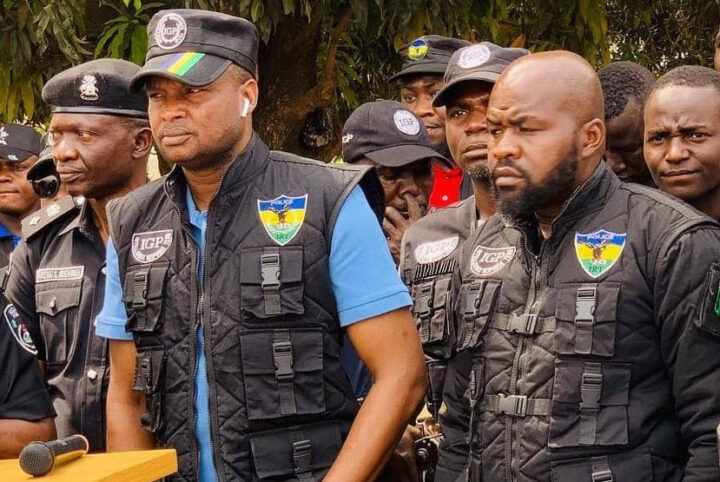EXCLUSIVE: FBI contacts Nigeria police over warrant arrest for DCP Abba Kyari
The allegations against Abba Kyari, the suspended deputy commissioner of police, took a startling dimension on Monday when the National Drug Law Enforcement Agency (NDLEA) declared him wanted for alleged drug-dealing.
Femi Babalola, spokesperson of the NDLEA, in a press briefing, said the anti-drug agency strongly believes that “DCP Kyari is a member of a drug cartel that operates the Brazil-Ethiopia-Nigeria illicit drug pipeline”.
The NDLEA’s revelation comes months after the Federal Bureau of Investigation (FBI) indicted Kyari of conspiring with Hushpuppi, self-confessed international fraudster, in a $1.1 million scam targeting Qatari business people.
The FBI secured a court order for Kyari’s extradition and arrest over his alleged involvement in the Hushpuppi fraud.
Advertisement
The suspended police officer denied the allegation, claiming that his “hands are clean”.
Amid the allegation, Usman Baba, the inspector-general of police, set up a panel to probe the allegations against Kyari. A few weeks later the panel submitted its report.
Recently, the Police Service Commission (PSC) directed that a different panel be constituted to further investigate Kyari’s case.
Advertisement
Kyari has been under investigation since July 2021, and there is the speculation that the federal government is foot-dragging on the matter so as to scuttle the extradition.
Some Nigerians have alleged that the NDLEA’s allegation against Kyari is a ploy by the federal government to truncate his extradition.
Here, TheCable puts into perspective what the law says about extradition in the light of the litany of allegations against Kyari — home and abroad.
WHAT IS EXTRADITION AND HOW DOES IT WORKS WITH NIGERIA?
Advertisement
Extradition is a formal action in which a particular jurisdiction upon request hands over an accused or convicted person to another jurisdiction where an alleged offence was committed.
Hushpuppi, for instance, was arrested in Dubai, but handed over to the US for prosecution.
Nigeria has several laws and treaties guiding the extradition of its citizens to other countries. Treaties on extradition have been signed by Nigeria and some countries to facilitate the extradition of accused persons.
For instance, the Extradition Treaty 1935 was signed by Nigeria, the US and the UK. The provisions in the treaty are binding on the three countries.
Advertisement
First, for an extradition process to commence in Nigeria, there must be a diplomatic request from the representative of that country to the attorney-general of the federation. The request must be accompanied by a duly authenticated warrant of arrest or certificate of conviction issued in that country.
Second, the attorney-general of the federation having considered the facts presented by the requesting country may make an order to a court requesting that the case be determined for extradition.
Advertisement
The attorney-general also has the powers to reject the extradition request if the alleged offence has political colouration or the alleged offender is being targeted on the basis of race, religion or nationality.
Section 6 of the Extradition Act states: “(a) A request for the surrender of a fugitive criminal of any country shall be made in writing to the attorney-general by a diplomatic representative or consular officer of that country and shall be accompanied by a duly authenticated warrant of arrest or certificate of conviction issued in that country.
Advertisement
”(b) Where such a request is made to him, the attorney-general may by an order under his hand signify to a magistrate that such a request has been made and require the magistrate to deal with the case in accordance with the provisions of this Act, but shall not make such an order if he decides on the basis of information then available to him that the surrender of the fugitive is precluded by any of the provisions of subsection (1) to (7) of section 3 of this Act.”
DID DCP KYARI BREACH ANY EXTRADITABLE OFFENCE?
Advertisement
There have been arguments on whether the allegations levelled by the FBI against the suspended IRT boss constitute an extraditable offence.
Article 3 of the Extradition Treaty 1935, which was signed by Nigeria, the US and the UK, highlighted offences that are worthy of extradition.
A review of article 3 of the treaty shows that the allegations levelled against Kyari by the FBI fall under number 17 and 18 of the highlighted offences in article 3.
Article 3 states that: “Extradition shall be reciprocally granted for the following crimes or offences:
“17. Fraud by a bailee, banker, agent, factor, trustee, director, member, or public officer of any company, or fraudulent conversion.
“18. Obtaining money, valuable security, or goods, by false pretences; receiving any money, valuable security, or other property, knowing the same to have been stolen or unlawfully obtained.”
Speaking in an interview, Abubakar Malami, attorney-general of the federation, On February 6, said the federal government is working with the US on the “possible extradition” of Kyari.
Malami added that the police panel has established “reasonable grounds for suspicion” which could lead to Kyari’s extradition.
KYARI’S ALLEGED DRUG-DEALING OFFENCE IN NIGERIA VIS-A-VIS EXTRADITION
The Extradition Act states conditions in which an accused person cannot be extradited to the requesting country.
One of such conditions as stipulated in section 3 (f) of the law is that the accused person shall not be surrendered if he or she is charged with an offence under a Nigerian law until the expiration of the sentence or prosecution, particularly when the offence is different from the one allegedly committed in the requesting country.
Section 3 (f) states: “A fugitive criminal- (a) who has been charged with an offence under the law of Nigeria or any part thereof, not being the offence for which his surrender is sought; or
“(b) who is serving a sentence imposed in respect of any such offence by a court in Nigeria, shall not be surrendered until such a time as he has been discharged whether by acquittal or on the expiration of his sentence, or otherwise.”
There is a possibility that the suspended IRT boss could be charged and arraigned in court by the NDLEA for offences bordering on drug trafficking.
If Kyari is arraigned by the NDLEA for drug-related offences, which is a breach of Nigerian law, the provisions of section 3(f) of the Extradition Act could serve as an impediment to his extradition to the US.
LAWYERS SPEAK
Speaking on the development, Festus Ogun, human rights lawyer, told TheCable that if the NDLEA files charges against Kyari the action will “succeed in hindering and frustrating” his extradition process to the US.
“The simple interpretation of the above provision of the law (referring to section 3 of the Extradition Act) in respect to this case is that any extradition application made against Abba Kyari shall be rejected if the NDLEA decides to charge him with an offence, under Nigerian law, other than the offence for which his surrender is sought in the US, that is the crime he allegedly committed in connection with Hushpuppi,” Ogun said.
“While it is desirable that the NDLEA gets to the root of this drug cartel matter involving Abba Kyari by ensuring that those found wanting after thorough investigation are charged before a competent court of record, such an action will only succeed in hindering and frustrating his (Kyari’s) extradition.”
Ogun added that Malami has the power as the attorney-general to ensure “substantial justice” in the prosecution of Kyari by the NDLEA and extradition to the US.
Another human rights lawyer, Inibehe Effiong told TheCable that the “sensible” decision is for the federal government to extradite Kyari to the US for prosecution.
Effiong added that the suspended IRT boss can still be brought back to Nigeria to face trial after the outcome of his prosecution in the US.
“My opinion remains that let the case in the US take precedence, whatever the outcome of that case, he can always be brought back to Nigeria to face trial for the offence relating to alleged involvement in hard drugs,” the lawyer said.
“This is the sensible thing to do. Otherwise, it will not be unfounded to assume that this may have been orchestrated after all to frustrate his extradition since the narcotic allegation is not related to the case presented by the FBI.”






